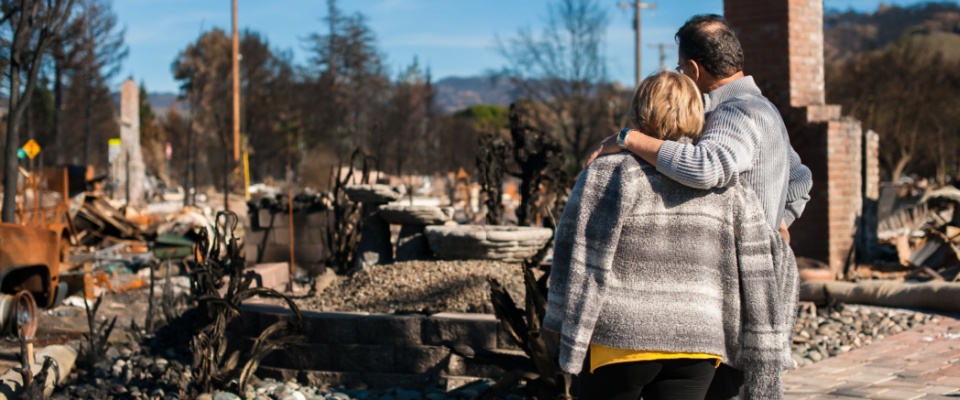Wildfires are becoming more common across the United States, especially in the West, where hot summers and dry conditions fuel the risk of fires year-round. If you’re a renter, you may wonder, “Does renters insurance cover wildfires?” When flames spread, the damage can be sudden and expensive to recover from.
Renters insurance typically protects you from wildfire damage, but there are important details you should know. Let’s break it down so you can feel more confident about your coverage.
Does renters insurance cover wildfires?
In most cases, yes. Renters insurance usually includes coverage for fire damage, and that extends to wildfires. That means if your personal belongings are destroyed or damaged by fire, your insurance should help pay for replacements. In many cases, your plan covers the additional costs you may face if your home becomes unlivable.
However, while renters insurance covers your personal belongings, it doesn’t pay for damages to the building itself. Repairing or rebuilding the structure is the landlord’s responsibility, which is usually covered by their property insurance.
ResidentShield Insurance and wildfire protection
ResidentShield Insurance ensures that the items you own are safeguarded against risks like fires and other covered events.
ResidentShield’s HO4 policy covers your personal belongings, like electronics or furniture, if they’re damaged by wildfire. At the same time, this policy doesn’t cover the property itself. The responsibility for rebuilding or repairing the structure falls on the landlord’s insurance.

What’s included in wildfire coverage?
When asking whether renters insurance covers wildfires, it helps to look at the types of protection included in a standard policy:
- Personal property coverage: If your laptop, couch, or closet full of clothes is damaged or destroyed in a wildfire, your insurer will reimburse you up to the policy’s limit.
- Loss of use (or additional living expenses): If your apartment becomes uninhabitable due to fire damage, this coverage may help pay for hotel stays, food, or temporary housing until you can move back in.
What to keep in mind
There are a few exceptions and limits to your renters insurance. Here are some things you should keep in mind:
- Policy limits: Your reimbursement is capped at the maximum coverage amount you choose when buying your policy. If your belongings are worth more than your limit, you won’t be fully covered.
- Certain valuables: High-value items like jewelry, art, or collectibles may only be covered up to a smaller limit unless you buy extra protection.
- Negligence: If an insurer can prove that you contributed to the damage through reckless behavior, coverage could be denied.
What if you live in a high-risk area?
If you’re renting in a wildfire-prone area, you may run into higher premiums. Insurers sometimes charge more in high-risk zones, or in rare cases, they might even refuse coverage altogether.
Still, many insurance companies offer renters insurance in these areas, often backed by state-supported programs to make sure renters aren’t left without options. If you’ve had trouble finding coverage, check your state’s Department of Insurance for available resources.

How to protect yourself before a wildfire
Even with renters insurance, prevention is still important. Here are some steps renters can take:
- Make an inventory: List your belongings, take photos, and store receipts when possible. This makes the process of filing a claim much smoother.
- Understand your coverage: Besides knowing whether renters insurance covers wildfires, make sure you know how much coverage you have and whether it’s enough.
- Keep digital copies: Store your policy and inventory online so they’re safe even if your apartment is affected by fire.
- Stay alert: Sign up for local emergency alerts and have a go-bag ready with essentials like documents, medications, and chargers.
The bottom line
Wildfires may feel like something that happens “out there,” but if you live in a region where the risk is rising each year, it’s worth preparing in advance. Renters insurance is one of the simplest, most affordable tools you can use to protect yourself.
A standard policy protects your personal belongings and pays for temporary housing if you’re forced out by wildfire and other issues, but it doesn’t cover structural repairs, which are your landlord’s responsibility. Beyond asking whether renters insurance covers wildfires, make sure you understand the details of your policy.
Wildfires can strike quickly and leave long-lasting effects, but having renters insurance means you’re not starting from zero if disaster hits. Think of it as a safety net for your financial peace of mind.




